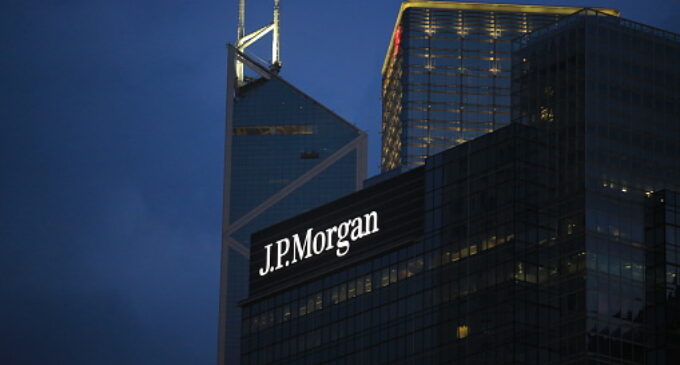Nigeria’s net FX reserves likely fell to $3.7bn at end of 2022, says JP Morgan

JP Morgan, an American multinational financial services firm, estimates that Nigeria’s net foreign exchange (FX) reserves fell to $3.7 billion as of the end 2022 .
This is contained in the firm’s latest report titled ‘Nigeria: Reform pause rather than fatigue’.
Gross FX reserves represent the government’s total holdings of foreign currency reserves. Net FX reserves deduct foreign currency liabilities from gross foreign currencies reserves. According to Central Bank of Nigeria (CBN) data, the country’s gross FX reserves stood at $36.61 billion as of end of 2022.
Nigeria’s FX reserves play a crucial role in defending the naira and covers the country’s huge import bills.
In its report, JP Morgan said the $3.7 billion figure is significantly lower than prior estimates, owing to larger-than-expected currency swaps and borrowing against existing reserves.
“Based on partial information from the audited financial accounts, we estimate that CBN’s net FX reserves were around US$3.7bn at the end of last year, from US$14.0bn at end-2021,” the report reads.
The firm clarified that it arrived at $3.7 billion by making some assumptions which if incorrect would change the estimated figure.
“In arriving at said estimate we make a few assumptions which if incorrect would substantially change the picture. They include: (i) an addition of US$5.0bn in IMF Special Drawing Rights (SDR) to external reserves in order to arrive at total gross FX reserves of US$37.8bn, broadly in line with the 30-day moving average of US$37.08bn previously published on the central bank’s website,” the report further reads.
(ii) adjusting the gross external reserves with three key FX liability lines that include FX forwards (US$6.84bn), securities lending (US$5.5bn) and currency swaps (US$21.3bn); and (iii) estimating currency swaps by backing out FX forwards and outstanding OTC Futures balances from an overall aggregate published in the financial accounts.”
JP Morgan, however, said that although low net FX reserves mean continued FX market pressures, the CBN still has the ability to source FX at commercial and semi-commercial rates.
“Given the highly profitable nature of the currency swap arrangements between the CBN and domestic commercial banks, we expect these to continue for sometime, albeit in smaller sizes and arguably more punitive rates,’ the report adds.
“Furthermore, authorities are in the initial stages of identifying assets for sale, which may provide some medium-term relief. For example, the President’s policy advisory council has recommended the government sell down its stake in the most joint-venture oil and gas assets, a proposal that is estimated to bring in up to US$17bn.
“In addition, the recently announced US$3bn loan to NNPC could help partly improve FX liquidity conditions in the market. We expect NNPC to sell the dollars to CBN and remit the naira proceeds to the government as upfront payments for oil revenues and taxes. That being said, the large external financing needs of the private sector will sustain FX pressure.”
‘HEADLINE INFLATION TO RISE IN COMING MONTHS’
JP Morgan said it expected that headline inflation will still remain elevated, particularly due to higher food costs.
“We believe July’s inflation print is early evidence of the impact of the fiscal and FX reforms which are likely to continue pushing headline inflation higher over the coming months,” JP Morgan said in its report.
“Higher parallel market rates in recent weeks are also likely to have an impact on August’s inflation reading and will be most notable in higher food and core prices. The core inflation measure (excluding food and energy costs) rose by 20.5% in July, from 20.1% recorded in June. We now see headline inflation rising towards 28%oya by year-end.”
The firm said President Bola Tinubu’s decision to keep a cap on petrol prices is likely to provide some relief but the exchange rate is likely to remain on a depreciating path and put further pressure on prices.















There are no comments at the moment, do you want to add one?
Write a comment